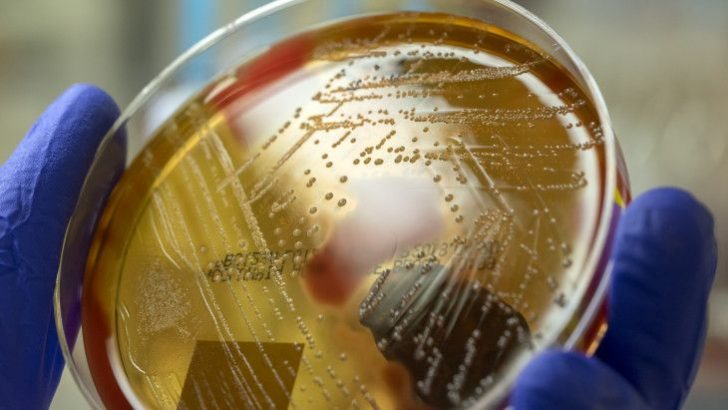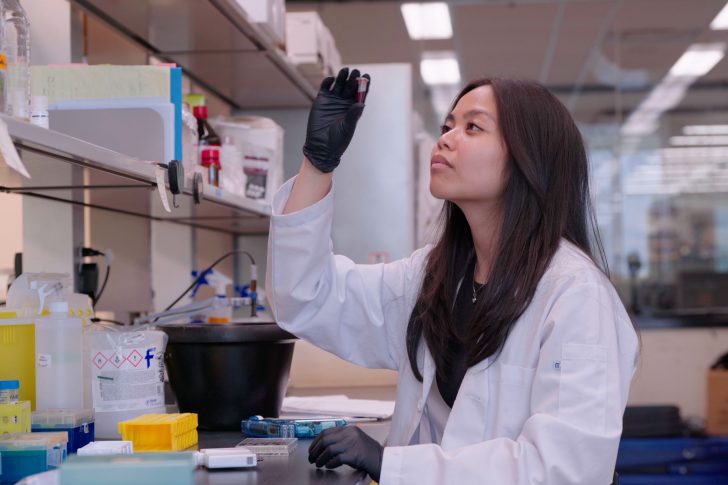Artificial Intelligence (AI) is quickly dominating the field of drug discovery for good. It is possible with its powerful ability to identify potential candidates that can effectively treat diseases. Recently, researchers at MIT and McMaster University have turned to AI for help in identifying a new antibiotic that can kill a type of drug-resistant bacterium that is responsible for thousands of deaths in the US alone.
In this article, we will explore how AI has assisted researchers in discovering the compound Abaucin, its potential to help medical professionals treat drug-resistant infections, and the methods used to identify this antibiotic.

Anna / Pexels | With this AI-backed discovery of Abaucin, medical professionals will be able to diagnose and treat existing drug-resisting infections.
The Acinetobacter baumannii Bacterium
Acinetobacter baumannii is a bacterium that is responsible for causing numerous infections, particularly in hospital settings. This bacterium is known to resist the effects of antibiotics. Thus, making it difficult to treat. It is estimated that Acinetobacter baumannii is responsible for the deaths of approximately 7000 Americans each year.
As the bacterium is notoriously difficult to treat, with clinical trials indicating that current antibiotics have a 25% treatment success rate, researchers have turned to AI for help in finding new treatment options.
The Discovery of Abaucin
MIT researchers utilized a machine-learning algorithm to search through a library of 6.1 million compounds, looking for potential candidates that could effectively treat Acinetobacter baumannii. The algorithm identified Abaucin as a potential candidate, and further studies confirmed its effectiveness against the bacterium.

ABC | Essentially, Acinetobacter baumannii is a drug-resisting bacterium that causes the lives of many Americans.
Thus, testing indicated that Abaucin is not only effective against Acinetobacter baumannii. But also does not negatively affect human cells. Additionally, the researchers found that Abaucin can successfully treat infections in mice.
The Role of AI in Drug Discovery
Drug discovery is a long and expensive process that often involves trial and error. The use of AI can help to reduce the time and financial costs of drug discovery while also improving the success rate. AI can analyze data sets much more quickly than human researchers. Thus, identifying potential candidates that humans might have overlooked.
This ability to analyze vast amounts of data and identify patterns has resulted in the discovery of Abaucin, an antibiotic that might have otherwise gone undiscovered.

Elle | Deep learning and AI are revolutionizing the healthcare sector for good.
The Potential Impact of Abaucin
According to MIT researchers, the discovery of Abaucin could revolutionize the way we treat drug-resistant infections like Acinetobacter baumannii. With current antibiotic treatments failing to treat infections 75% of the time, the discovery of a new antibiotic like Abaucin could be life-changing for patients affected by these infections.
Medical professionals will be able to diagnose and treat existing drug-resistant infections quickly and effectively, potentially saving thousands of lives.
Thus, the discovery of Abaucin is an exciting breakthrough in the field of AI-assisted drug discovery. This breakthrough shows the potential of AI in identifying potential drug candidates and improving the success rate of drug discovery. Of course, the impact of Abaucin could have far-reaching implications in the medical field. Particularly, in treating drug-resistant infections.







